Welcome to the world of gardening! Once you’re here you’ll find a lot of gardening words you may not have heard before. There is nothing worse than trying to figure out what someone is referring to when you are just learning something new, so we created a list.
Below are some common gardening words you may hear in the gardening world and what they mean.
This post may contain affiliate links. Please see my disclosure policies. If you purchase after clicking an affiliate link we may receive small commission at no cost to you. As an Amazon Associate I earn from qualifying purchases.
Gardening Words in Alphabetical Order
- Amended soil is soil that has had a material added to improve the physical properties of the native soil.
- Annual plants: plants that flower one season and need to be replanted.
- Asteraceae is the largest plant family. Often called the “sunflower family”
- Bareroot plants, such as roses, are dormant plants that are dug up and stored with no soil around the roots.
- Biennials are flowers or vegetables that grow vegetation the first year, flower the second year and need to be replanted.
- Bolt means a plant has gone to flower.
- Bulb – a dormant ball shaped root that plants such as tulips and hyacinths grow from.
- Bract is a small leaf often mistaken for the flower, but the flower is within the leaf axil. Bougainvillea is an example
- Brassicaceae is a plant family. Often called the “mustard family.”
- Companion planting is when you grow plants together that complement or benefit each other.
- Compost is decaying organic matter such as leaves or food scraps.
- Community Garden – land divided into individual garden plots where individuals are responsible for their own plot.
- Cultivation is taking care of plants.
- Cutting is a leaf, stem, or root of a plant. Use to propagate a new plant.
- Crop rotation is when someone grows different types of crops in the same area during different seasons.
- Cross pollination is when pollen from one plant fertilizes another plant. It increases a fruit or vegetables yield. This usually happens naturally via wind or bees.
- Deadheading in the simplest term is removing a spent flower.
- Deciduous plants lose their leaves in cooler weather (winter)
- Determinate plant has a determined size and flower at the same time.
- Direct sow is planting your seeds directly in your garden.
- Dormant means the plant is alive, but not actively growing.
- Drainage is the process of removing water
- Epithet is the second part of a plant’s scientific name
- Fabaceae is a plant family that represents legumes or beans.
- Fertilizers are chemicals or natural substances to enhance a plant’s growth.
- Friable soil is soil that easily crumbles in your hand.
- Genus is the first part of a plant’s scientific name.
- Germinate is the process a seed uses to become a seedling
- Indeterminate plants have to set
- Interplanting is when you plant a vegetable or flower with another vegetable or flower.
- Loam is soil with equal parts of clay, sand, and silt.
- Node is the spot on a plant stem where leaf buds emerge forming a bump.
- Organic gardening is gardening without the use of chemicals or pesticides.
- Perennial plants are plants that live for more than two years.
- pH is a measure of acidity
- Plant family is a group of plants that are related.
- Propagation is the process of increasing the number of plants. One way to propogate a plant is by taking a cutting.
- Rhizome is a
- Rooting hormone: a chemical used to propagate plants.
- Rust is a plant disease signified by rust color spots on leaves.
- Scientific name is the plant’s Latin name.
- Seedling a young plant germinated by seed.
- Self-pollinating means the flower can pollinate itself from a flower on the same plant. It doesn’t need another plant to pollinate.
- Solanaceae – a plant family also known as the “nightshade family”
- Sowing or sown
- Transplants are seeds grown, often indoors, and once they become seedlings are transplanted to their permanent home in the garden.
- Water infiltration rate measures the rate at which water is absorbs into the soil.
- Wilt refers to a plant that has a drooping appearance. Usually induced by lack of water
- Xeriscape is a popular arid landscape design that conserves and efficiently uses water
